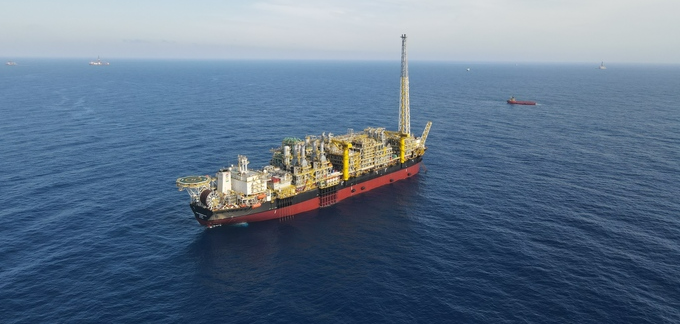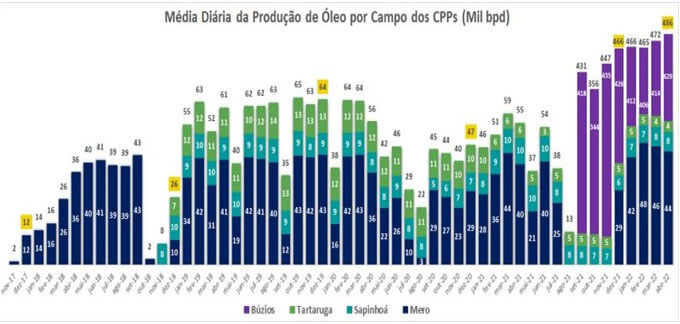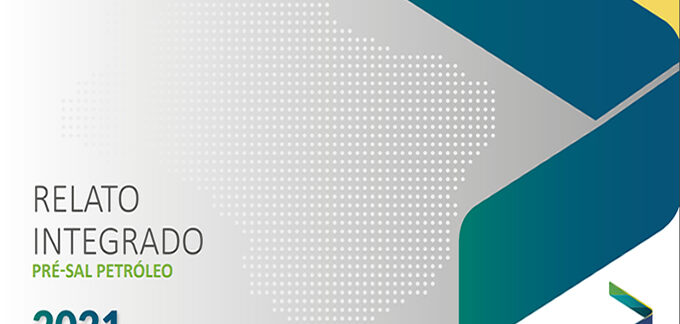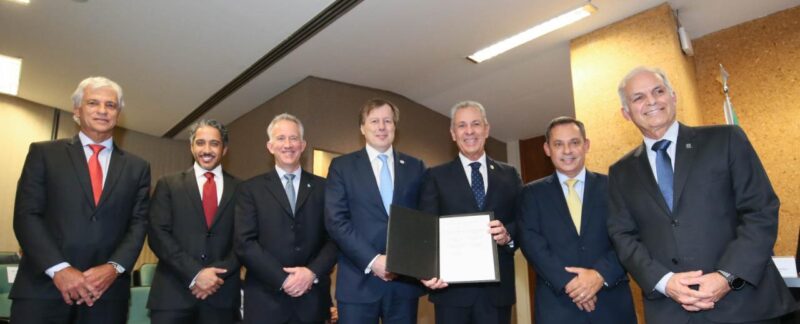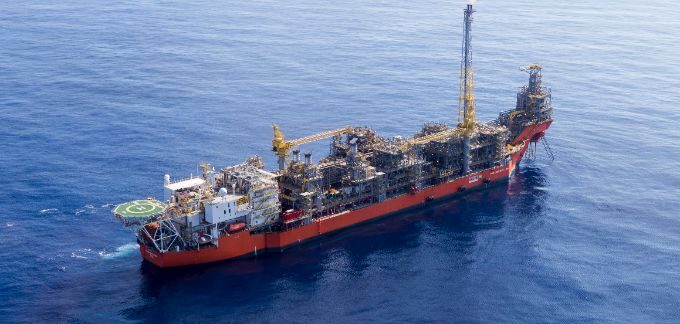Auction yielded a total signature bonus of R$ 11.1 billion, of which R$ 7.7 billion was destined for states and municipalities. Total planned investments are around R$ 204 billion.
The Ministry of Mines and Energy (MME) held, this Wednesday (27/04), in Brasília (DF), the signing ceremony of the production sharing contracts for the surplus from the transfer of rights in the Sépia and Atapu fields, located in the Santos Basin, in the Pre-Salt.
The Minister of Mines and Energy, Bento Albuquerque, highlighted that “the auction was structured with an emphasis on predictability and competitiveness, principal, best practices of transparency, traceability and legal certainty, in light of the current scenario of the world oil industry”.
The Atapu block was acquired by the consortium formed by Petrobras (operator), with 52.5%; Shell Brasil, with 25%; and TotalEnergies EP, with 22.5%. The value of the signature bonus was R$ 4 billion and the percentage of surplus oil offered to the Union was 31.68%.
The Sépia block was contracted by the consortium formed by Petrobras (operator), with 30%; TotalEnergies EP, with 28%; Petronas, with 21%; and QP Brasil, with 21%. The collection in signature bonuses was R$ 7.1 billion and the percentage of surplus in oil for the Union, 37.43%.
“This is a very special day for the Ministry of Mines and Energy, as it is the result of the hard work and perseverance of the various institutions that are present here. The Federal Government will continue to formulate policies that bring security and attractiveness to the business environment in the national energy sector. We remain firm in the purpose of transforming, in a sustainable way, our natural resources into wealth, in favor of the development of Brazil and the well-being of our society”, added Bento Albuquerque.
The auction was successfully held in December 2021 and the two fields won ensured:
- Total signature bonus of R$ 11.1 billion, of which R$ 7.7 billion is destined for states and municipalities;
- The surplus in Atapu oil reached a premium of 437% and that of Sépia reached 149%;
- Total planned investments are around R$ 204 billion; and
- The expected collection of government participation is around R$ 302 billion, over the 35 years of the contracts.
The director general of the National Agency for Petroleum, Natural Gas and Biofuels (ANP), Rodolfo Saboia, recalled that the development of the pre-salt layer is fundamental for Brazil, meaning energy security for the country. “The contracted areas are exceptional. Together, Atapu and Sépia already produce more than 220,000 barrels of oil equivalent per day,” he said.
The CEO of Pré-Sal Petróleo (PPSA), Eduardo Gerk, participated in the ceremony and in the signing of the contracts. With Sépia and Atapu, PPSA manages 29 contracts.
Understand PPSA's participation in the Sépia and Atapu auction:
November 2019
ANP offers Sepia and Atapu fields at auction, but areas have not been auctioned. Among the reasons were the uncertainties at the time regarding the amount of compensation and the percentage of participations.
December 2019
Ministry of Mines and Energy (MME) designates two actions on the subject to be carried out by PPSA: the definition of the reciprocal participation in the transfer of rights and the future production sharing agreement and the evaluation and negotiation with Petrobras for the calculation of the compensation amount before the announcement of a new auction.
February 2020
PPSA begins technical assessment work on the Sépia and Atapu deposits.
September 2020
PPSA forwards to the ANP, together with Petrobras, its technical report, with the definition of the reciprocal participations of the transfer of rights agreement and the future production sharing agreement.
February 2021
ANP approves the participations, defined by PPSA and Petrobras, establishing a percentage of 60.5% and 68.7% for the participation in production sharing of Atapu and Sépia, respectively.
April 2021
MME Ordinance determines that Petrobras and PPSA must sign an agreement, to be submitted to the MME for deliberation,
on the definition of parameters and amount of compensation to be paid to Petrobras.
December 2021
Agreement is entered into between PPSA and Petrobras, based on guidelines issued by a Proposition Committee, submitting, for approval by the MME, the parameters agreed with the calculated value of the compensation to be paid to the assignee for future contracts under the production sharing regime , in the amount of US$ 6.45 billion for the two fields.
December 2021
The Second Round of Surplus Volumes of the Assignment of Rights is carried out. The Sépia and Atapu blocks were sold with oil surplus percentages for the Union of 37.43% and 31.68%, respectively, corresponding to premiums of 149.20% and 437.86%.
April 2022
The production sharing contracts for the surplus volumes from the transfer of rights in the Sépia and Atapu fields are signed. Production of the co-participation fields will begin. PPSA starts to manage the contracts.
The ceremony also had the participation of the Minister of Science, Technology and Innovation, Paulo Alvim, the federal deputy, Júlio Lopes and the president of Petrobras, José Mauro Ferreira.
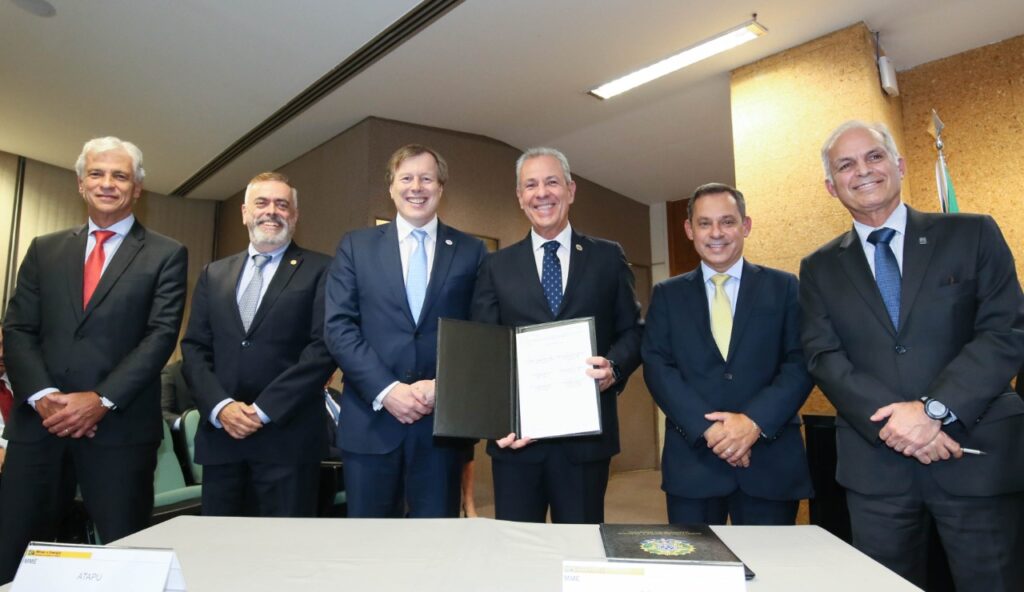
MME realiza cerimônia de assinatura dos contratos da cessão onerosa dos campos de Sépia e Atapu, no Pré-Sal – Foto: Bruno Spada.


